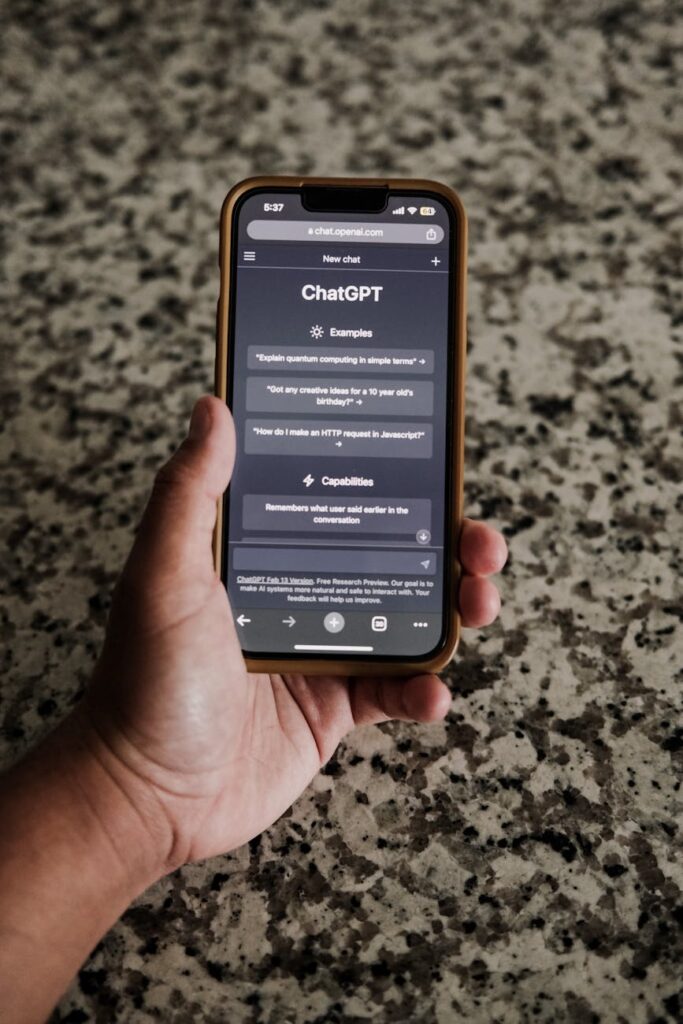The landscape of artificial intelligence is undergoing a profound metamorphosis, shifting from a collection of isolated tools into a deeply embedded, intuitive, and proactive personal assistant. No longer confined to specific applications or web interfaces, AI is now seamlessly integrating directly into our everyday devices, becoming an invisible yet indispensable layer of our digital existence. This evolution signifies a fundamental change in how we interact with technology, moving beyond reactive commands to an anticipatory partnership. We are witnessing the birth of an era where our devices don’t just respond to our explicit requests, but actively anticipate our needs, making technology truly intuitive and remarkably intelligent.
Beyond the chat window: AI’s deep integration
For a long time, our engagement with AI was largely transactional. We opened a specific app, typed a query, or issued a voice command to a dedicated smart speaker. AI was a tool we *used*, a separate entity in our digital ecosystem. Today, that paradigm is rapidly dissolving. AI is no longer a distinct application but an integral component woven into the very fabric of our devices and operating systems. Consider how modern smartphones, smart home hubs, and even wearables now feature AI capabilities operating in the background. It’s embedded in the camera to optimize photos, in the battery management system to extend life, and in notification handling to prioritize what matters most. This deep integration means AI is always present, always learning, and always working to enhance the user experience without requiring a conscious activation. It’s a silent partner, making technology feel less like a machine and more like an extension of ourselves.
The rise of proactive intelligence
Perhaps the most significant leap in AI’s evolution is its transition from a reactive agent to a proactive one. In the past, we initiated the conversation; now, AI is starting to anticipate our needs before we even vocalize them. Imagine your smart home system adjusting the thermostat based on your learned preferences, the outdoor temperature, and your calendar, knowing you’ll be home soon. Or your phone suggesting the optimal route to your next appointment, not because you asked, but because it understands your schedule and real-time traffic conditions. This proactivity is fueled by sophisticated algorithms that analyze vast amounts of data – user habits, contextual cues, environmental factors, and historical patterns – to predict future requirements. It’s about shifting from answering “What should I do?” to “Here’s what you likely need, and it’s already done.”
Contextual awareness and personalized experiences
To truly be a personal assistant, AI must possess a profound understanding of context. This goes far beyond mere data points; it involves recognizing the nuances of our daily lives. Modern AI assistants are becoming incredibly adept at interpreting factors like the time of day, our current location, ongoing activities, communication patterns, and even subtle shifts in our tone of voice. This rich contextual awareness allows for hyper-personalized interactions and suggestions that feel remarkably intuitive. For instance, an AI might suggest a restaurant not just because it’s nearby, but because it aligns with your dietary preferences, your usual dining companions, and your current mood, detected through your recent online activity or calendar entries. This level of personalization moves beyond generic recommendations, crafting experiences that are uniquely tailored to each individual.
| Contextual Data Point | AI’s Proactive Action/Suggestion |
|---|---|
| Time of day (e.g., 7 AM) | Brew coffee, present morning news summary, display first calendar event. |
| Location (e.g., leaving work) | Suggest fastest route home, pre-heat oven, notify family of estimated arrival. |
| Device usage (e.g., listening to calming music) | Dim smart lights, suggest a meditation app, silence non-urgent notifications. |
| Calendar events (e.g., client meeting next day) | Suggest relevant documents, remind about travel time, prepare summary of past interactions. |
| Biometric data (e.g., elevated heart rate) | Suggest deep breathing exercise, recommend a break, notify emergency contact if critical. |
The intuitive future: anticipating our needs
As AI continues its trajectory, the future promises an even more seamless and anticipatory relationship between humans and technology. We are moving towards a world where our devices will not only understand our explicit commands but also infer our unspoken needs and desires. Imagine an AI that preemptively orders your favorite coffee as you approach your usual cafe, knowing your routine and preferences. Or a health assistant that detects subtle changes in your sleep patterns or vital signs, proactively suggesting interventions or even scheduling an appointment with your doctor before you feel unwell. This level of predictive intelligence will redefine convenience and efficiency, making our lives smoother and more optimized. However, this future also necessitates careful consideration of privacy, ethical boundaries, and the fine line between helpful anticipation and intrusive overreach, ensuring that technology remains a servant, not a master.
The transformation of AI from a standalone tool to an integrated, proactive personal assistant marks a monumental shift in our interaction with technology. We are moving beyond simple command-and-response mechanisms to a world where AI anticipates our needs, understands our context, and seamlessly assists us throughout our daily lives. This deep embedding within our devices, coupled with its evolving ability to predict and personalize, is making technology truly intuitive and remarkably intelligent. While this evolution promises unprecedented convenience and efficiency, it also underscores the growing importance of responsible AI development, ensuring that this powerful new partner enhances human capabilities while respecting privacy and autonomy. The future is one where technology doesn’t just work for us, but with us, as an ever-present, discerning, and truly personal assistant.
